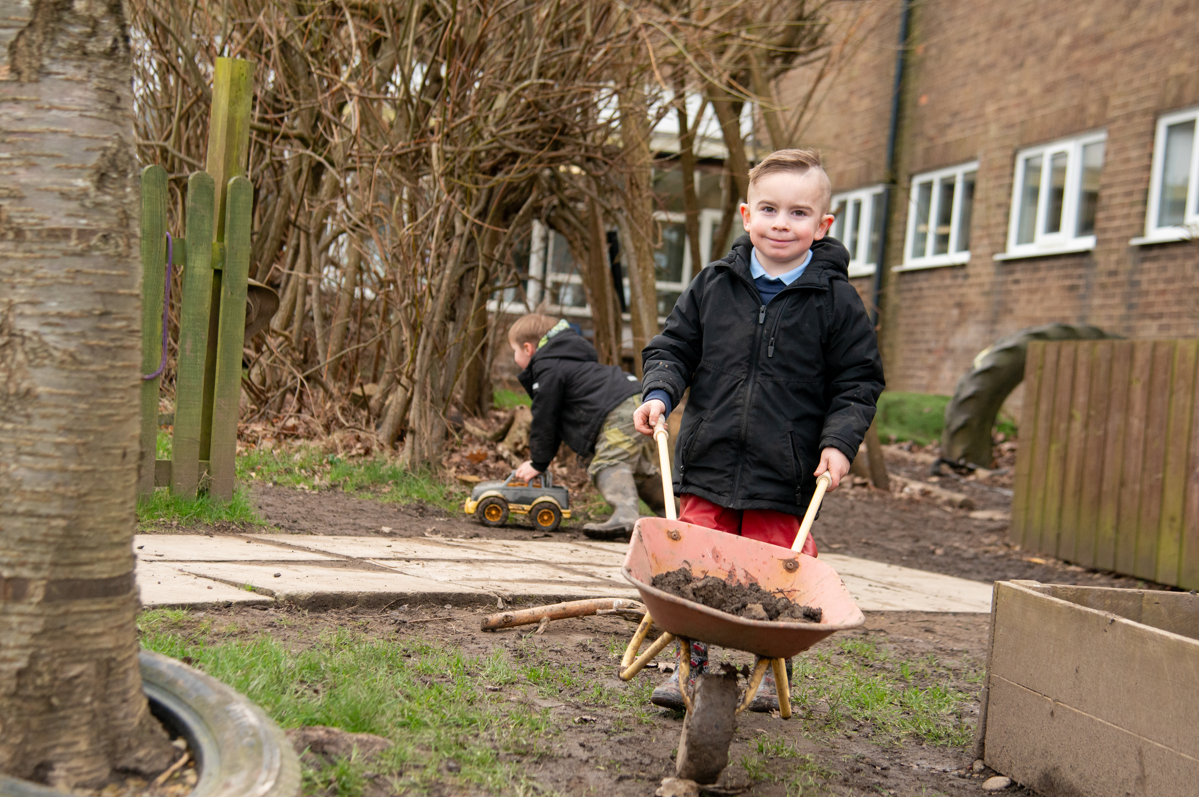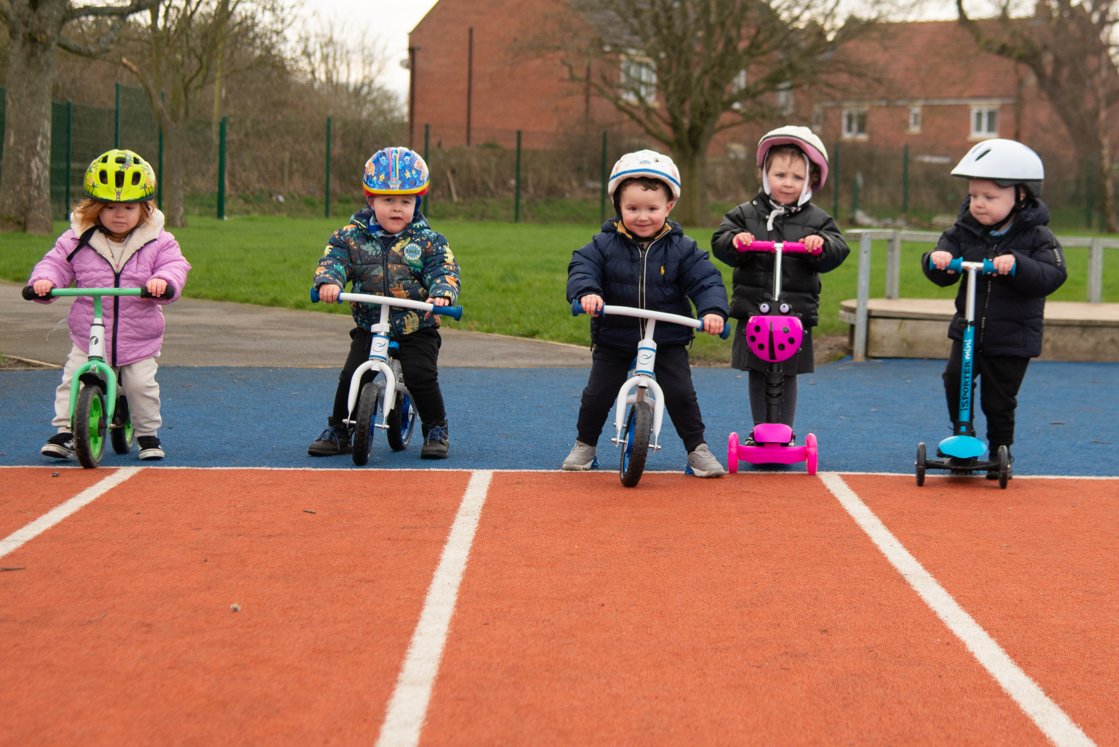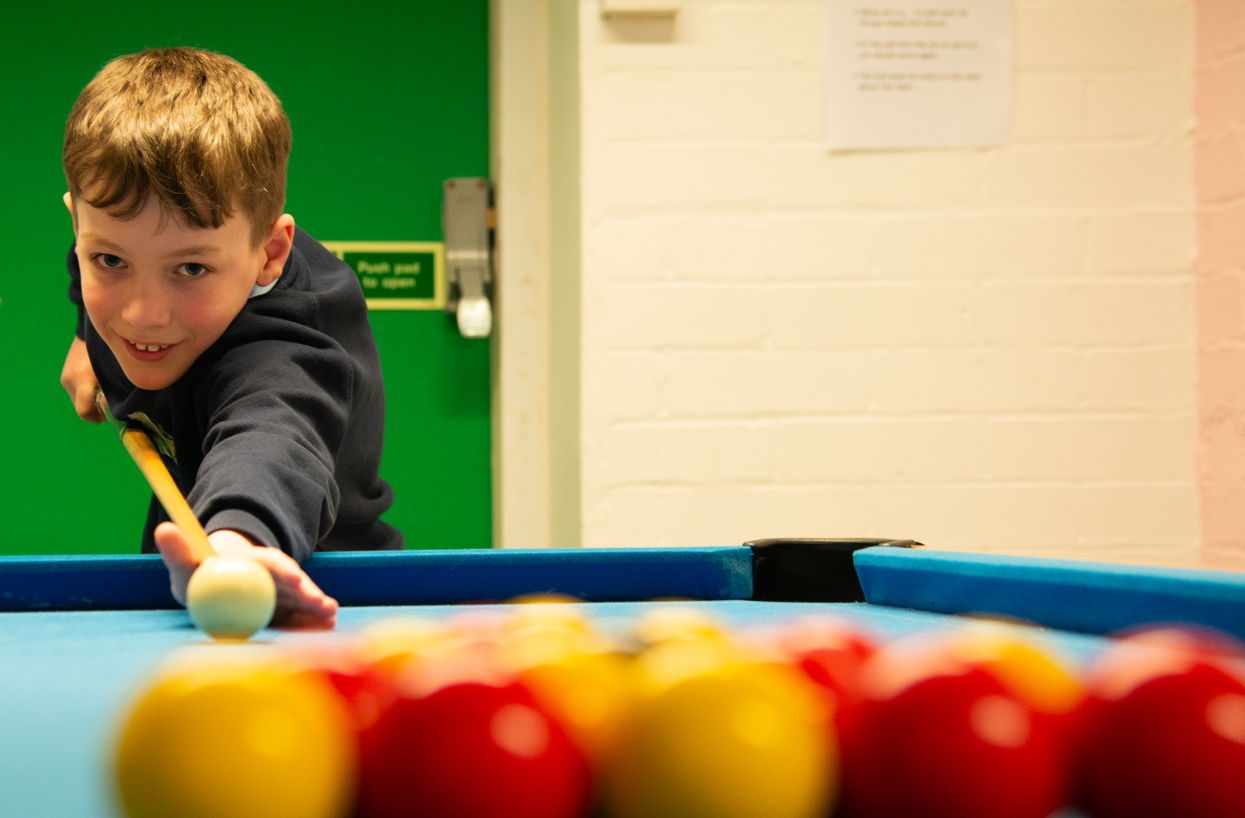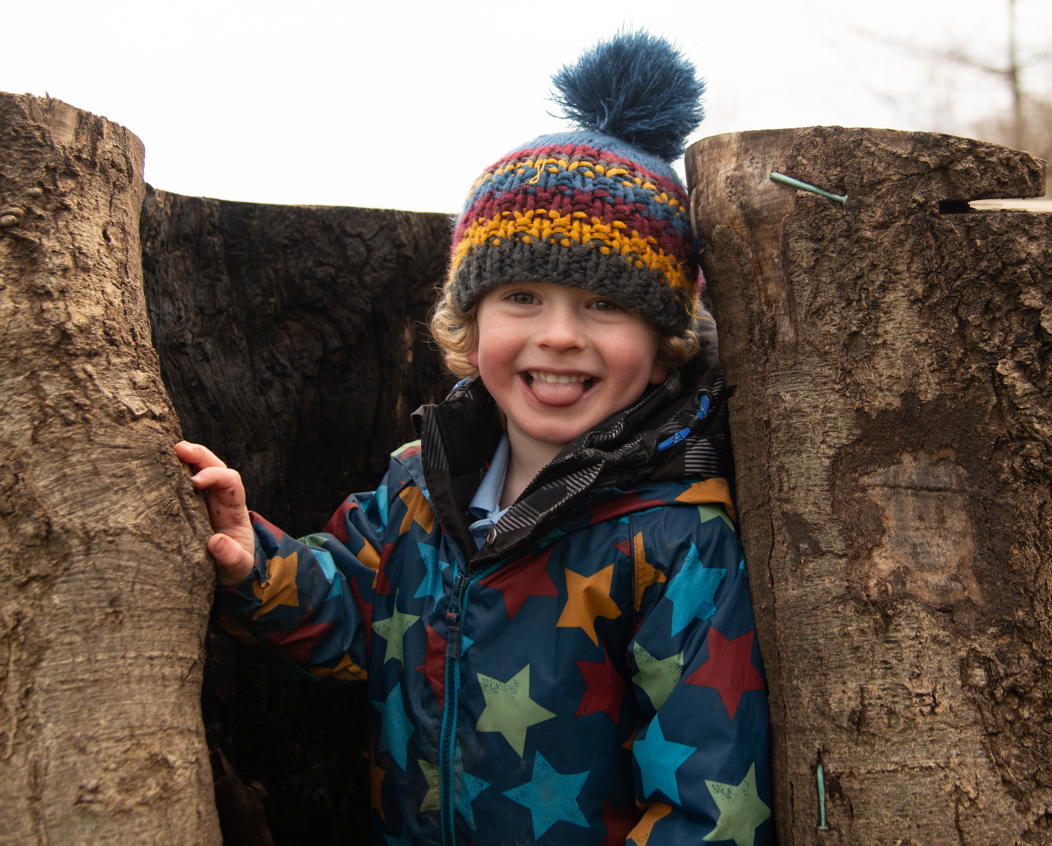Playtime Provision

It has long been recognised that play is fundamental to a child’s health, happiness, development and well-being. As children spend a significant proportion of their time engaged in play at Greenfields, we have led staff to reflect upon how playtimes can be enhanced to support the health and well-being of our pupils. Our intent as a school is to provide children with opportunities for quality play outdoors that they may not otherwise experience outside of school and to also provide experiences to support them to become successful learners and confident individuals.
We have refined our playtime provision and approach to outdoor areas, working with the school and local community to develop our provision and transform the spaces we have. Our school grounds are impressive with traditional yards, a multi-use yard with a soft surface, a large field, trim trail, climbing equipment and a variety of other areas. We are continuing to provide children with a variety of new areas and are hoping to develop our areas further this academic year with a mud kitchen, sandpit, water play, calm sheds, reading opportunities and den building areas. Children also have opportunities to access our nurture spaces at playtimes which are led by members of staff who are trained in pastoral care.
We have recently introduced Sports Leaders to playtimes. These are a group of selected children who work closely with our PE Lead and headteacher to help improve areas. The children have come up with some fantastic ideas, including the types of play equipment they would like, having a dance/gymnastics area and providing calm spaces for children that prefer more quiet times during their play.
From physical activities such as playing with tyres, riding bikes and scooters, and playing team games to enjoying imaginative play in our different areas, our outdoor provision offers an exciting alternative to the standard playground activities. Children are not only more active at lunch or break times, but they also have the opportunity to further develop life skills such as cooperation, team work and problem-solving. They are becoming motivated and enthusiastic builders, engineers, explorers and designers.
Benefits of play provision
‘Play is great for children’s well-being and development. When planning and providing play opportunities, the goal is not to eliminate risk, but to weigh up the risks and benefits. No child will learn about risk if they are wrapped in cotton wool.’ Managing Risk in Play Provision: Implementation guide is published for Play England 2012.
Further benefits of a planned play provision include:
- Accidents– schools have up to 80% less reported accidents
- Teachers - consistently report improved focus during teaching time in afternoon lessons
- Self-regulation- children in learn to self regulate through practice, trust and freedom
- Physical activity- children are significantly more active
- Mental well-being- children are happier and self-reporting improved mental health
- Social and emotional development- Good play in the laboratory of life where relationships are practised
- Links to formal learning- increased creativity, imagination and collaborative skills
- Rights- Play is a child's right as recognised by the UN Convention on the Rights of the Child
- OFSTED- evidence on approach to wellbeing and inclusion
- Behaviour - a clear improvement of behaviour within school.



